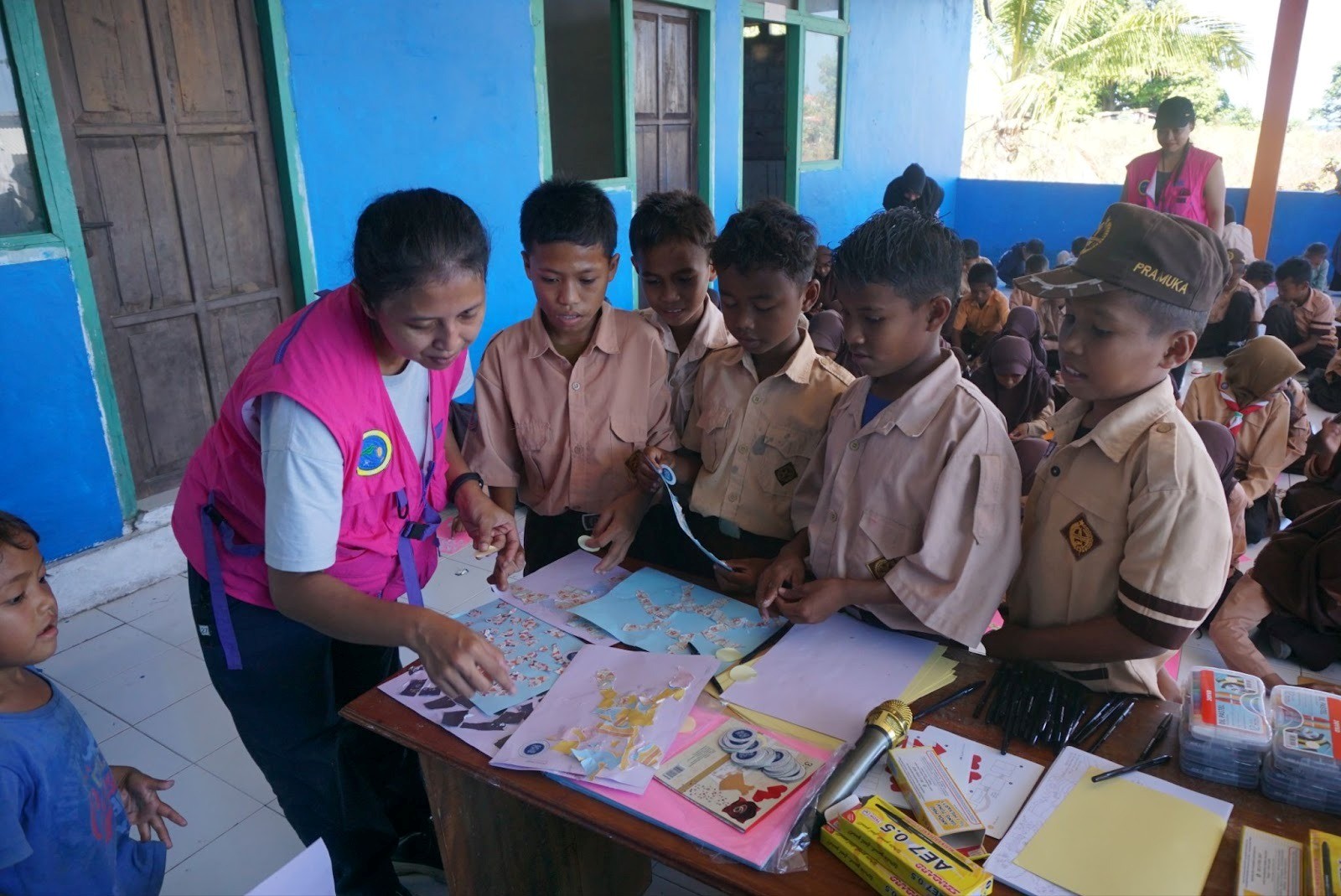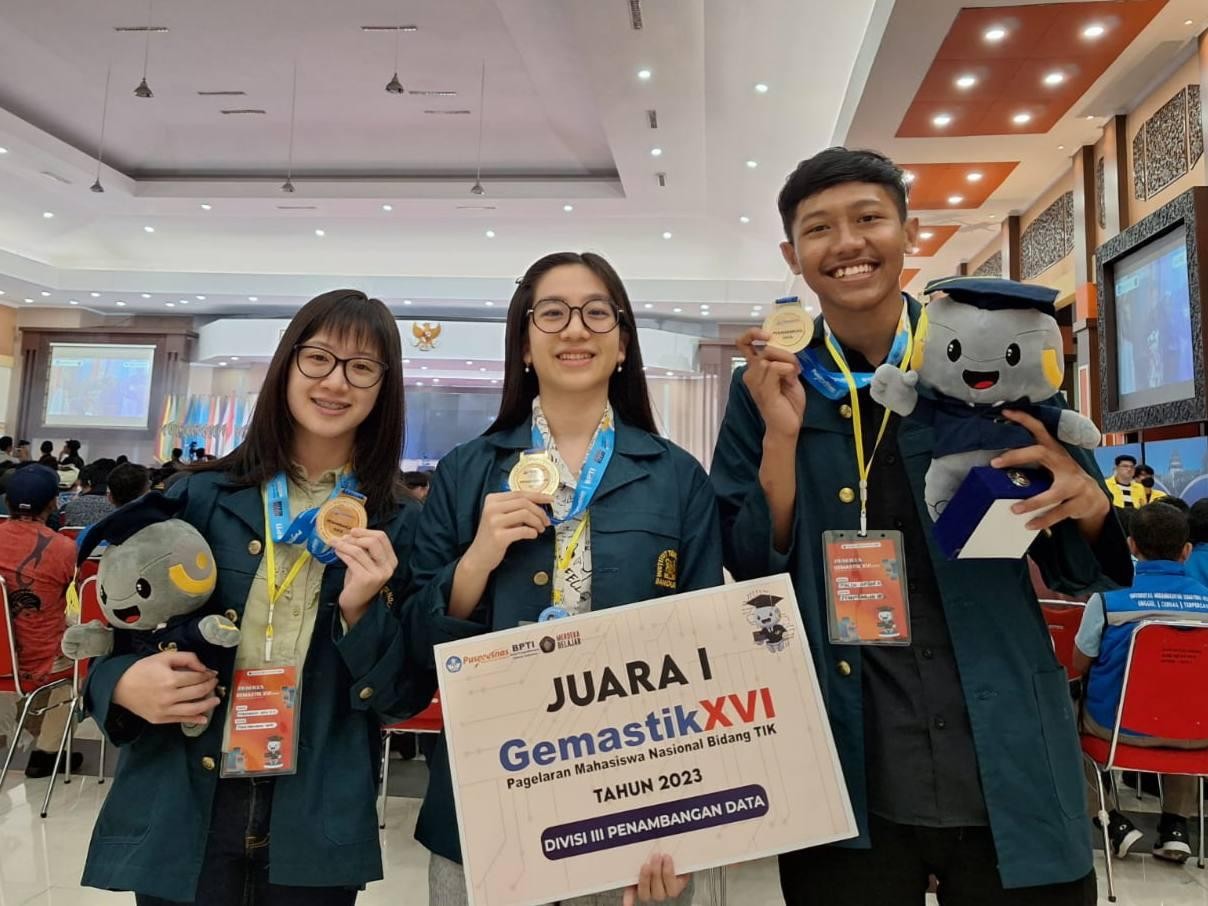The Australia-Indonesia Research Partnership (PAIR) Reveals Seven Ways to Build a 'Smart' Healthcare Supply Chain to Face the Covid-19 Pandemic
By Adi Permana
Editor Adi Permana

BANDUNG, itb.ac.id—Institut Teknologi Bandung (ITB) received a report on “Digital health: Seven ways to build a 'smart' healthcare supply chain in Indonesia” from the Australia-Indonesia Center (AIC). AIC Executive Director Dr. Eugene Sebastian sent the letter to the Rector of ITB Prof. Reini Wirahadikusumah, Ph.D. on Monday (19/7/2021).
This report is AIC’s second report to ITB. Previously, Dr. Eugene Sebastian shared their first Covid-19 analysis on occupational health and safety in Indonesia and how to protect Indonesian health workers. The report is the result of research funded by the Australian Government through the Australia-Indonesia Center under the Australia-Indonesia Research Partnership (PAIR) program. ITB School of Business and Management (SBM-ITB) lecturers were also involved in the book preparation, namely Prof. Wawan Dwanto and Dr. Murshid Hasan Basri.
In the latest report, AIC looks at issues of long lead times for medical supplies, price increases, inventory management, quality, and safety issues. As the situation worsens, Indonesia's health system faces difficulties in getting the medical supplies it needs.
To understand the healthcare supply chain, AIC brought together practitioners, policy makers and academics from Indonesia and Australia to share their expertise and develop recommendations. This report addresses three issues: the current state of procurement and supply chain practices; use of existing digital technology and its benefits; and the opportunity for Australia to collaborate with Indonesia to build a smart healthcare supply chain.
“We felt that this type of analysis is important. It provides timely access to the best available evidence for policy observers,” said Dr. Eugene in his e-mail to Prof. Reini. “This responds to the Australian government’s partnership for Recovery Strategy. And it helps organizations consider ways to support our hard-working medical and health workers.”
Through their second report, AIC put forward seven key recommendations on government priorities to help build a resilient and responsive health care supply chain system.
The first recommendation is to develop an end-to-end digital platform that provides a centralized picture from supply to procurement. The second recommendation is to create a more comprehensive logistics solution that allows hospitals to work together to address supply problems. While the third recommendation is to increase the flexibility of the e-catalog to provide more choices and reduce bureaucracy.
The fourth recommendation is to ensure effective quality and safety monitoring functions in a single platform system. The fifth recommendation is to encourage standardization and interoperability across digital applications.
Furthermore, the report recommends ensuring transparency and traceability are built into all digital supply chain solutions. Then, develop data analytics capabilities that can show supply and demand in real-time.
This second report concludes that procurement and supply chain management in health services in Indonesia is not perfect. That adds to the challenges of the pandemic. Fortunately, while Indonesia is in the early stages of adopting digital technology, Indonesian healthcare supply chain practitioners welcome Australia's support.
Reporter: Adi Permana
Translator: Aghisna Syifa Rahmani (Biologi, 2020)

.jpg)
.jpg)


.jpg)



